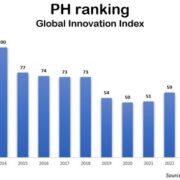Manila, Philippines — The ongoing novel coronavirus (COVID-19) outbreak will have a significant impact on developing Asian economies through numerous channels, including sharp declines in domestic demand, lower tourism and business travel, trade and production linkages, supply disruptions, and health effects, according to a new analysis by the Asian Development Bank (ADB).
The magnitude of the economic losses will depend on how the outbreak evolves, which remains highly uncertain. The range of scenarios explored in the analysis suggests a global impact in the range of $77 billion to $347 billion, or 0.1% to 0.4% of global gross domestic product (GDP).
In a moderate scenario, where precautionary behaviors and restrictions such as travel bans start easing 3 months after the outbreak intensified and restrictions were imposed in late January, global losses could reach $156 billion, or 0.2% of global GDP. The People’s Republic of China (PRC) would account for $103 billion of those losses—or 0.8% of its GDP. The rest of developing Asia would lose $22 billion, or 0.2% of its GDP.
“There are many uncertainties about COVID-19, including its economic impact,” said ADB Chief Economist Yasuyuki Sawada. “This requires the use of multiple scenarios to provide a clearer picture of potential losses. We hope this analysis can support governments as they prepare clear and decisive responses to mitigate the human and economic impacts of this outbreak.”
Estimated Global and Regional Impact of COVID-19, under Different Scenarios
|
Best Case |
Moderate Case |
Worse Case |
||||
|
As % of GDP |
Losses in $ billions |
As % of GDP |
Losses in $ billions |
As % of GDP |
Losses in $ billions |
|
|
World |
–0.1 |
$77 |
–0. 2 |
$156 |
–0.4 |
$347 |
|
People’s Republic of China |
–0.3 |
$44 |
–0.8 |
$103 |
–1.7 |
$237 |
|
Developing Asia excluding the People’s Republic of China |
–0.2 |
$16 |
–0.2 |
$22 |
–0.5 |
$42 |
|
Rest of the World |
0.0 |
$17 |
0.0 |
$31 |
0.0 |
$68 |
|
Source: ADB staff estimates. |
||||||
The analysis, The Economic Impact of the COVID-19 Outbreak on Developing Asia, presents full details on the scenarios considered. It also presents estimated impact on individual developing Asian economies—and on sectors within these economies—including under a hypothetical “worst case” scenario for a given economy in the event of a significant outbreak. These should not be interpreted as predictions that an outbreak will occur but are meant to provide guidance for governments as they consider appropriate responses.
All scenarios and assessments are available on ADB’s website and will be updated as the situation evolves.
ADB’s response to COVID-19 to date includes $2 million announced on 7 February to enhance detection, prevention, and response in the PRC and the Greater Mekong Subregion; another $2 million announced on 26 February to support response in all its developing members; and a CNY130 million ($18.6 million) private sector loan, signed on 25 February, to Wuhan, PRC-based pharmaceutical distributor Jointown Pharmaceutical Group Co. Ltd. to support the continued supply of essential medicines and personal protective equipment.
ADB stands ready to provide further support to its developing members in their efforts to respond to the adverse impact of COVID-19. ADB will use appropriate means to address the identified needs including through existing and new financial assistance, emergency assistance lending, policy-based lending, private sector investment, and knowledge and technical assistance.
ADB is committed to achieving a prosperous, inclusive, resilient, and sustainable Asia and the Pacific, while sustaining its efforts to eradicate extreme poverty. Established in 1966, it is owned by 68 members—49 from the region.
—
Stay updated with news and information from the Asian Development Bank by visiting their website at https://www.adb.org.





